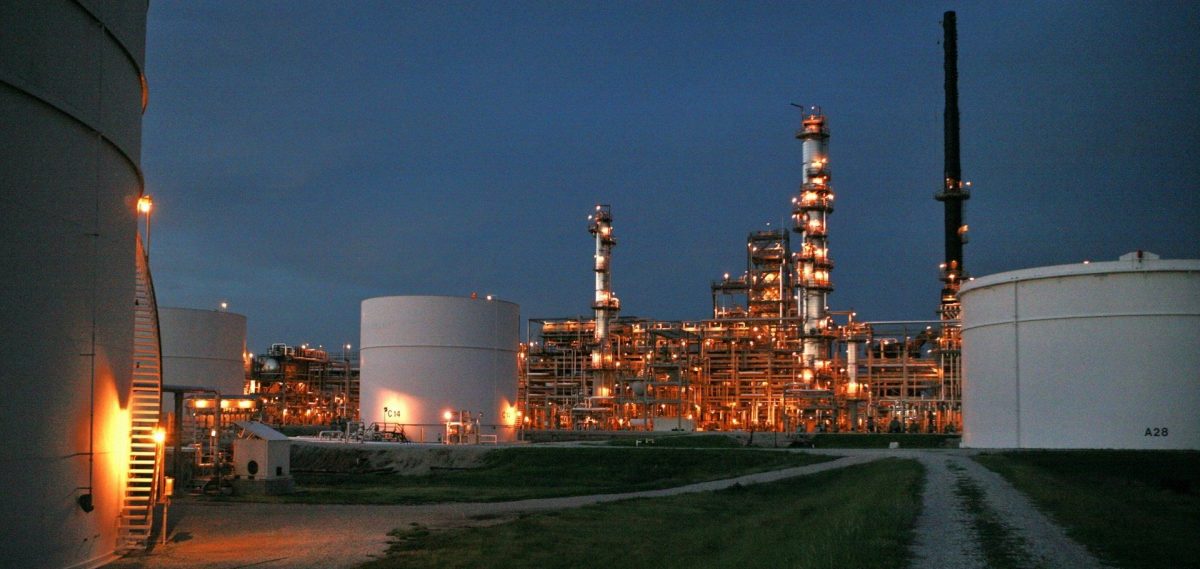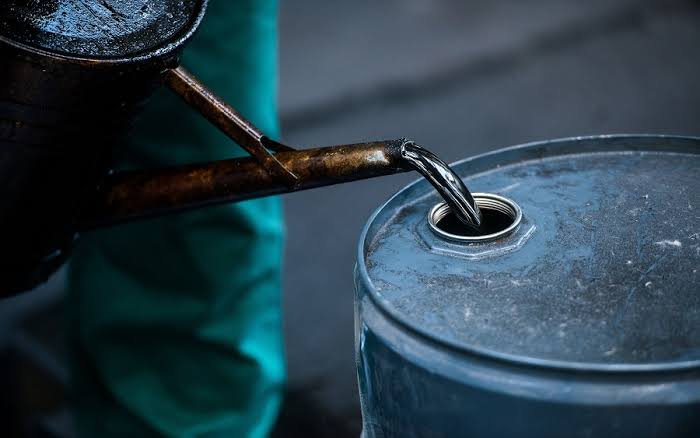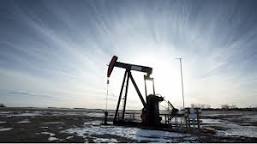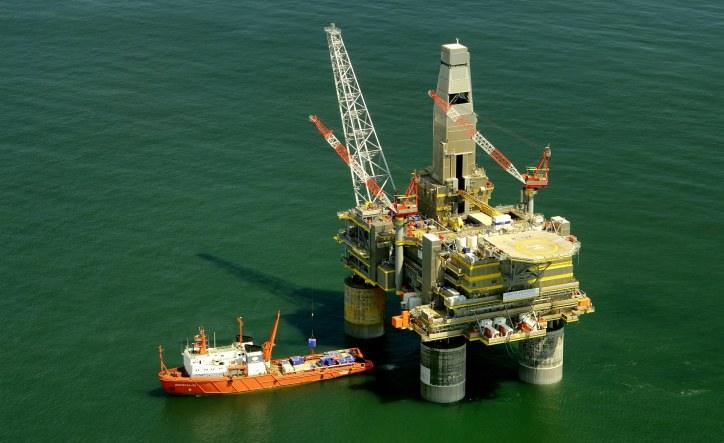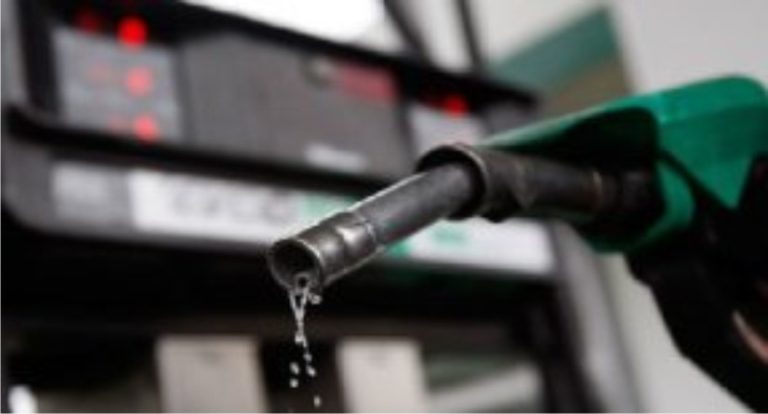AGO [/vc_column_text][/vc_column][/vc_row]PORT HARCOURT DEPOTDEPOT PRICEAVIDOR PH/NIPCO₦ 180.0SHORELINK BULK STRATEGIC PHTULCAN/TSLMASTERSLIQUID BULK₦ 180.0STOCKGAPNIPCO/SIGMUND₦ 180.0BULK STRATEGIC/NIPCOOVHCONOILSAHARA CALABAR DEPOTDEPOT PRICENORTHWEST₦183.0AMMASCOMAINLAND₦ 175.0SAMON PETFYNEFIELD₦ 176.0ALKANES₦ 175.5YSG (YOUNG SHALL GROW)₦ 175.5BLOKKS HYDEAZMAN/NIPCO₦183.0UGO HANNAH WARRI DEPOTDEPOT PRICERAINOIL OGHARA₦172.0NEPAL OIL & GAS / NNPC₦173.0PRUDENT OGHARA₦165.0MATRIX₦164.0CYBERNETICSTAURUS₦165.0OPTIMA₦165.0PINNACLEAYM SHAFA LAGOS DEPOTDEPOT PRICEAFRICA TERMINALS₦ 169.0IBACHEM₦ 162.0IBETO₦ 162.0MRS₦ 170.0LEIGHTEN PETINDEX₦ 168.0ETERNA₦ 168.0FOLAWIYO₦ 167.0OBATCHIPET₦ 166.0RAHAMANIYYAA ZNIPCO₦ 167.0AITEO₦ 170.0AIPEC₦ 166.5SAHARA₦...
Month: April 2020
23-04-2020
AGO [/vc_column_text][/vc_column][/vc_row]PORT HARCOURT DEPOTDEPOT PRICEAVIDOR PH/NIPCO₦ 180.0SHORELINK BULK STRATEGIC PHTULCAN/TSLMASTERSLIQUID BULK₦ 180.0STOCKGAPNIPCO/SIGMUND₦ 180.0BULK STRATEGIC/NIPCOOVHCONOILSAHARA CALABAR DEPOTDEPOT PRICENORTHWEST₦183.0AMMASCOMAINLAND₦ 175.0SAMON PETFYNEFIELD₦ 176.0ALKANES₦ 175.5YSG (YOUNG SHALL GROW)₦ 175.5BLOKKS HYDEAZMAN/NIPCO₦183.0UGO HANNAH WARRI DEPOTDEPOT PRICERAINOIL OGHARA₦172.0NEPAL OIL & GAS / NNPC₦173.0PRUDENT OGHARA₦170.0MATRIX₦164.0CYBERNETICSTAURUS₦165.0OPTIMA₦167.0PINNACLEAYM SHAFA LAGOS DEPOTDEPOT PRICEAFRICA TERMINALS₦ 169.0IBACHEM₦ 164.0IBETO₦ 164.0MRS₦ 170.0LEIGHTEN PETINDEX₦ 168.0ETERNA₦ 168.0FOLAWIYO₦ 167.0OBATCHIPET₦ 166.0RAHAMANIYYAA ZNIPCO₦ 167.0AITEO₦ 170.0AIPEC₦ 166.5SAHARA₦...
22-04-2020
AGO [/vc_column_text][/vc_column][/vc_row]PORT HARCOURT DEPOTDEPOT PRICEAVIDOR PH/NIPCO₦ 180.0SHORELINK BULK STRATEGIC PHTULCAN/TSLMASTERSLIQUID BULK₦ 180.0STOCKGAPNIPCO/SIGMUND₦ 180.0BULK STRATEGIC/NIPCOOVHCONOILSAHARA CALABAR DEPOTDEPOT PRICENORTHWEST₦183.0AMMASCOMAINLAND₦ 175.0SAMON PETFYNEFIELD₦ 176.0ALKANES₦ 175.5YSG (YOUNG SHALL GROW)₦ 175.5BLOKKS HYDEAZMAN/NIPCO₦183.0UGO HANNAH WARRI DEPOTDEPOT PRICERAINOIL OGHARA₦172.0NEPAL OIL & GAS / NNPC₦173.0PRUDENT OGHARA₦170.0MATRIX₦164.0CYBERNETICSTAURUS₦169.0OPTIMA₦170.0PINNACLEAYM SHAFA LAGOS DEPOTDEPOT PRICEAFRICA TERMINALS₦ 169.0IBACHEM₦ 166.0IBETO₦ 166.0MRS₦ 170.0LEIGHTEN PETINDEX₦ 168.0ETERNA₦ 168.0FOLAWIYO₦ 167.0OBATCHIPET₦ 166.0RAHAMANIYYAA ZNIPCO₦ 170.0AITEO₦ 170.0AIPEC₦ 166.5SAHARA₦...
FG spent N1.96tn on JV oil assets in 2019
The Federal Government spent a total of N1.96tn in 2019 on oil and gas assets being developed through joint ventures with private firms, mostly international oil companies, data from the Nigerian National Petroleum Corporation have shown.
The NNPC, which represents the Federal Government in the JVs, has an obligation to make cash call payment for the development of the assets.
In 2018, the corporation used N1.83tn, more than half of the total revenue (N3.11tn) generated from oil and gas sales, for the payment of the JV cash calls.
The government generated N3.05tn from the sale of crude oil and gas in 2019, out of which N1.96tn was transferred into the joint venture cash call account while the balance of N1.09tn went into the Federation Account, the NNPC data revealed.
The dollar allocation to the JV cash call account was $3.45bn (from oil and gas export receipt of $4.84bn) while the naira portion was N907.91bn (from domestic oil and gas sale proceeds of N1.41tn).
The NNPC said the transfers were made to the JV cash call account as first line charge “to guarantee current and future production”.
The federation crude oil and gas lifting are classified into equity export and domestic, both of which are lifted and marketed by the NNPC and the proceeds remitted into the Federation Account.
The equity export receipts, after adjusting for the JV cash calls, are paid directly into the Federation Account domiciled in the Central Bank of Nigeria.
Domestic crude oil of 445,000 barrels per day is allocated for refining to meet domestic products supply.
Payments are effected to the Federation Account by the NNPC after removing crude and product losses, pipeline repairs and management cost incurred.
The nation’s oil and gas production structure is majorly split between the JV (onshore and in shallow waters) with foreign and local firms, and Production Sharing Contracts in deep water offshore.
The NNPC owns 55 per cent of the JV operated by Shell, and 60 per cent of all the others.
Under the JV arrangement, both the NNPC and the private operators contribute to the funding of operations in the proportion of their equity holdings and generally receive the produced crude oil in the same ratio.
Production from the JV assets has declined over the past few years, partly due to funding constraints occasioned by the NNPC’s inability to fulfil its cash call obligations as and when due.
The JVs accounted for 32.07 per cent of the average daily production of 1.98 million barrels recorded in November 2019 while the PSCs contributed 41.91 per cent, according to the latest NNPC data.
“For a while now, there have been calls for the conversion from the unincorporated joint venture model to the incorporated JV model, especially because of issues such as government’s cash call challenges, lending challenges and governance issues. These calls have become even stronger now,” an energy law expert, Dr Ayodele Oni, said.
According to him, funding of operations under the UJVs remains difficult for the NNPC for various reasons such as competing needs for the dwindling federal revenues.
Oni, who is a partner at Bloomfield Law Practice, said, “Although, the NNPC has devised some creative financing methods recently, it is agreed that there is still the urgent need to reconsider the current UJV model.”
According to him, the conversion of the UJV arrangements to limited liability companies will have the NNPC and its JV partners as shareholders.
“The IJV model should aid the financing of joint venture projects. Incorporation benefits include a separate legal personality from owners and ability of the IJVs to independently raise finance for petroleum operations without reliance on, and/or recourse to, its shareholders,” he added.
In March 2019, the Federal Government announced plans to cut its stakes in the JV assets to 40 per cent in a restructuring programme expected to be completed last year.
The then Minister of Budget and National Planning, Senator Udo Udoma, said the government would intensify efforts to improve its finances with the “immediate commencement of the restructuring of the joint venture oil assets so as to reduce government shareholding to 40 per cent.”
The 2019 approved budget presentation showed that N710bn was expected to be generated from the oil assets ownership restructuring in the 2018 budget but it was not achieved in both years.
The Federal Government did not include the sale of the JV oil asset stakes as a source of expected revenue in the 2020 budget, the highlights presented by the Minister of Finance, Budget and National Planning, Mrs Zainab Ahmed, showed.
“I don’t think putting it in the budget is the right thing to do. It should be put aside to address specific infrastructure needs,” an energy expert and former board member of the NNPC, Alhaji Abdullahi Bukar, told our correspondent.
Noting that the IOCs had divested some assets in recent years, he said the government should follow suit and sell to Nigerians to further grow local capacity.
“I think the Federal Government should consider selling its shares in the JVs,” he added.
Bukar, however, said this might not be the right time to sell, given the current realities in the oil and gas industry.
The sale of some stakes in the JV assets means the government’s cash call obligation will reduce.
A former Chairman, Petroleum Club, Lagos, Mr Godswill Ihetu, said the government did not really pursue the planned sale of part of its stakes.
He said doing that at this time would be tantamount to panic selling, adding that the sale of the nation’s ailing refineries should be the priority now.
The regime of the President, Major General Muhammadu Buhari (retd.), had in its Economic Recovery and Growth Plan released in 2017 said it would reduce government’s stakes in the JV oil assets, refineries and other downstream subsidiaries such as pipelines and depots.
Source: Punch via Energy mix report
Glut, low prices may force Nigeria, others to shut oil production
Motivation for continued oil production may drop further as oil prices fail to rebound, despite the OPEC+ production cut deal, even as available oil storage capacity around the world runs thin due to drop in global oil demand amid lockdowns and travel restrictions in many countries.
Indeed, energy experts project that OPEC producers, like Angola, Nigeria, and Iraq, who don’t have adequate refining capacity at home and don’t have solid long-term oil supply contracts with oil-importing nations are set to lose the most.
If prices continue to fall below production cost, many oil producers may be forced to shut crude production, amidst difficulty in getting the cargoes sold.
Yesterday, Brent Crude dropped to $26.50, WTI Crude $10.38, while Nigeria’s Bonny Light was $22.32.
Indeed, the Group Managing Director of the Nigerian National Petroleum Corporation (NNPC), Mele Kyari, had painted a gloomy picture of the nation’s economy in the months ahead, appealing to industry captains and Nigerians, to be prepared for very lean times.
According to him, the country has been unable to sell some of its cargoes of crude and liquefied natural gas.
Petroleum economics and energy policy expert, Michael Lynch, said OPEC’s second-largest oil producer, Iraq, sells most of the crude it produces, same as Saudi Arabia.
However, in recent years OPEC’s top producer and the world’s largest oil exporter had struck some major downstream deals in the world’s top oil importer, China, ensuring long-term demand for its crude in the market.
According to Lynch’s estimates of OPEC’s refinery capacity per member and their target production for May and June, OPEC’s combined domestic refining capacity is half of what its members would produce if they all stick to their quotas.
The countries that have long-term oil supply contracts with importers will be better off than those who rely more on spot crude sales. Data about the global spot crude market is incomplete, at best, Lynch says.
But oil-producing nations with higher shares of spot sales would likely feel the pinch from the storage capacity crunch much harder than others because amid the huge oversupply refiners are even trying to get out of some clauses in long-term contracts, let alone snap up spot cargoes.
Although the Federal Government had announced a cut in crude oil benchmark price, down to $30, while production remains at 2.18 million barrels per day (mbpd), as earlier contained in the budget estimate, the present realities where the country’s production is expected to be at 1.412mbpd, 1.495mbpd and 1.579mbpd respectively for the corresponding periods in the agreement, pose a challenge to the revised budget.
According to the Minister of State for Petroleum Resources, Timipre Sylva, the cuts will enable the rebalancing of the oil market and the expected rebound of prices by $15 per barrel in the short term, even as it also promises an appropriate balancing of the country’s 2020 budget that has been rebased at $30 per barrel.
Director/Chief Executive Officer of DPR, Sarki Auwalu, in a chat with The Guardian, said with the lockdown across several countries, therefore limiting movement of people and goods, energy balance has been disrupted.
He expects the imbalance to remain until global lockdowns are lifted.
In its comments, the Lagos Chamber of Commerce and Industry (LCCI), said the cuts will have a marginal effect on the economy, as demand for oil remains low and lockdown across many countries remain.
Its Director-General, Dr. Muda Yusuf, said though oil prices will retain some gain, the effect would not be huge until the lockdown is lifted globally.
Considering that 100-percent compliance in every country has never been achieved in such deals, OPEC members would be likely producing more than two times their combined refinery capacity.
OPEC and its Russia-led allies promised to remove 9.7mbpd from the market starting in May. But oil storage capacity may be full as early as in the middle of May, according to many analysts.
Despite the actions of OPEC+ and G20 to ease the glut, the oil industry may test the limits of its storage capacity in the coming weeks, the International Energy Agency (IEA) said this week.
“Never before has the oil industry come this close to testing its logistics capabilities to the limit,” the agency said in its closely-watched Oil Market Report for April.
Source: Guardian
21-04-2020
AGO [/vc_column_text][/vc_column][/vc_row]PORT HARCOURT DEPOTDEPOT PRICEAVIDOR PH/NIPCO₦ 180.0SHORELINK BULK STRATEGIC PHTULCAN/TSLMASTERSLIQUID BULKSTOCKGAPNIPCO/SIGMUND₦ 180.0BULK STRATEGIC/NIPCOOVHCONOILSAHARA CALABAR DEPOTDEPOT PRICENORTHWESTAMMASCOMAINLAND₦ 175.0SAMON PETFYNEFIELD₦ 176.0ALKANES₦ 175.8YSG (YOUNG SHALL GROW)₦ 175.5BLOKKS HYDEAZMAN/NIPCOUGO HANNAH WARRI DEPOTDEPOT PRICERAINOIL OGHARA₦172.0NEPAL OIL & GAS / NNPCPRUDENT OGHARA₦170.0MATRIX₦170.0CYBERNETICSTAURUS₦169.0OPTIMA₦170.0PINNACLEAYM SHAFA LAGOS DEPOTDEPOT PRICEAFRICA TERMINALS₦ 169.0IBACHEM₦ 169.0IBETO₦ 169.0MRS₦ 170.0LEIGHTEN PETINDEX₦ 168.0ETERNA₦ 168.0FOLAWIYO₦ 168.0OBATCHIPET₦ 168.0RAHAMANIYYAA ZNIPCO₦ 170.0AITEO₦ 170.0AIPEC₦ 168.5SAHARA₦ 168.0EMADEB...
Nigeria Optimistic of Price Rebound After Crude Sold for $12
Despite the slide of the crude oil reference price for Bonny Light to about $12 per barrel last week, Nigeria remains optimistic the situation at the international oil market would still rebound.
The Group Managing Director of the Nigerian National Petroleum Corporation (NNPC), Mele Kyari, in an interview with PREMIUM TIMES on Saturday in Abuja said the intervention of the Organisation of Petroleum Exporting Countries(OPEC) and its allies will soon lead to a rebound of oil prices.
According to Bloomberg, the price of bonny light, Nigeria’s premium oil grade, crashed from about $28 to $12 or $13 a barrel last week.
The news organisation said its data was provided by traders monitoring the West African market.
The present price of bonny light is well below the cost of production for Nigerian crude producers which is about $22 a barrel and also lower than the country’s crude benchmark of $30 per barrel.
This poses a fresh threat for Nigeria as it depends on crude sales for half of its revenue and 90 per cent of foreign exchange earnings.
About a week ago, faced with the grim reality of the impact of the current coronavirus pandemic which drove the global crude oil price to below 18 year’s low level, OPEC and its allies including Russia, resolved to undertake a cut of about 10 million barrels per day from their members’ oil production.
Considered the largest cut by OPEC in recent times, the cut in global oil supply was aimed at stabilising the market and bringing to a halt the spiralling decline in crude oil prices.
However, since the intervention, crude oil price continued a back and forth movement, indicating continued adjustment in search of the desired stability in the market.
The pattern may be as a result of the partial and total lockdown of economic activities in many countries in order to curtail the spread of the pandemic.
Also, traditional European buyers have stopped purchasing because the demand there has virtually collapsed.
In the interview with PREMIUM TIMES, Mr Kyari, who is also Nigeria’s National Representative in OPEC, said he remained optimistic the market conditions post-OPEC intervention will rebound and stabilise.
“The $12 per barrel (quoted on Friday in a Bloomberg report) is in reference to the benchmark or lowest possible price of a specific day last week, minus $4 discount.
“This is the market reality today after the recent output cut by OPEC+. But, I am optimistic it will rebound with the supply cut. “Yesterday (Friday) it was $28 ($24 less discount),” Mr Kyari said on Saturday.
He said crude oil price is very mobile at the moment, as the market conditions are yet to rebalance since the recent OPEC+ decision to cut output.
Bonny Light is Nigeria’s premium reference blend of sweet crude in the international market similar to the popular Brent crude. It is produced largely in the Niger Delta region.
Aside bonny light, other crude grades of the country are Forcados, Qua Iboe and Brass River.
source: Premium Times
20-04-2020
AGO [/vc_column_text][/vc_column][/vc_row]PORT HARCOURT DEPOTDEPOT PRICEAVIDOR PH/NIPCO₦ 180.0SHORELINK BULK STRATEGIC PHTULCAN/TSLMASTERS₦ 178.0LIQUID BULKSTOCKGAP₦ 179.0NIPCO/SIGMUND₦ 180.0BULK STRATEGIC/NIPCOOVHCONOILSAHARA CALABAR DEPOTDEPOT PRICENORTHWEST₦ 176.0AMMASCO₦ 176.0MAINLAND₦ 176.0SAMON PET₦ 176.0FYNEFIELD₦ 176.0ALKANES₦ 176.0YSG (YOUNG SHALL GROW)₦ 176.0BLOKKS ₦ 176.0HYDE₦ 176.0AZMAN/NIPCO₦ 176.0UGO HANNAH₦ 176.0 WARRI DEPOTDEPOT PRICERAINOIL OGHARA₦172.0NEPAL OIL & GAS / NNPCPRUDENT OGHARA₦167.50MATRIX₦170.0CYBERNETICSTAURUS₦169.0OPTIMA₦170.0PINNACLEAYM SHAFA LAGOS DEPOTDEPOT PRICEAFRICA TERMINALS₦ 169.5IBACHEM₦ 169.5IBETO₦ 170.5MRS₦ 170.0LEIGHTEN PETINDEX₦...
No buyers yet for 50m barrels of Nigeria’s crude oil ― Platts
Global energy data, financial information and analytics company, S&P Global Platts, disclosed that more than 50 million barrels of Nigerian crude oil for late April and May 2020 loading are still unsold, while the overhang is forcing down the value of Nigeria’s crude oil.
In a report on its website, Platts stated that Nigerian crudes, which are largely low in sulfur and yield a generous amount of diesel, jet fuel and gasoline, are finding it very difficult to attract interest from refiners in a market where demand has been battered due to the Coronavirus pandemic.
“A lot of Nigerian crude is already floating on the seas and in storage tanks with no home and destination. Some sellers have no option but to continue to look to floating storage, even as freight rates remain at elevated levels,” S&P Global Platts stated.
According to Platts, the sheer weakness of the physical oil market can be best explained by the state of the Nigerian crude market, as the once-coveted light sweet Nigerian barrel is facing one of its toughest trading cycles, as refiners shun these crudes, even as they are trading at record-lows.
It noted that sellers were resorting to holding some of this oil on inland or floating storage, to hope to sell at a later date, when demand recovers.
It quoted a crude oil trader as stating that, “all those who want to sell or get rid of a cargo are asking for bids … you find a treasure if you get a bid.”
Platts noted that demand destruction for jet fuel and gasoline had been particularly severe as the bulk of the world remains in lockdown, with restrictions on driving and flying.
Another reason for low demand for Nigerian oil, according to the company, had been that its big main customers — Europe and India — have massively cut their refining runs.More in Home
It said, “This overhang of Nigerian crude, is possibly the largest ever in recent trading cycles, according to traders. This has pushed Nigerian crude values to record-lows and is weighing down on the already-depressed Atlantic Basin crude market.
“The fall in Nigerian crude differentials has been cataclysmic. Bonny Light was assessed at a discount of $5.70 per barrel to Dated Brent on Wednesday, its lowest level since S&P Global Platts started assessing the grade in July 2001. Similar values were heard on Thursday afternoon, sources added. At the start of the year, it was trading at a premium of $1.70 per barrel to Dated Brent.
“The June loading program for Nigeria is expected to be released in just under a week, to add to the glut. Under the new OPEC/non-OPEC deal, Nigeria has committed to keep its crude output at 1.412 million barrels per day in May and June and at 1.495 million barrels per day between July and December. From January 2021 to April 2022, it will keep the output at 1.579 million b/d.
“Last week, Nigeria was producing 2.30 million b/d of crude and condensates, according to senior oil officials. With May loading cargoes already trading, sources were unsure as to how the cuts would be implemented from May, though they expect some barrels to be stored rather than exported as the demand picture already looks very bleak.”
17-04-2020
AGO [/vc_column_text][/vc_column][/vc_row]PORT HARCOURT DEPOTDEPOT PRICEAVIDOR PH/NIPCO₦ 185.0SHORELINK ₦ 190.0BULK STRATEGIC PHTULCAN/TSLMASTERS₦ 183.0LIQUID BULKSTOCKGAP₦ 183.0NIPCO/SIGMUND₦ 185.0BULK STRATEGIC/NIPCOOVHCONOIL₦ 183.0SAHARA CALABAR DEPOTDEPOT PRICENORTHWEST₦ 183.0AMMASCO₦ 183.0MAINLANDSAMON PET₦ 183.0FYNEFIELD₦ 176.0ALKANES₦ 176.8YSG (YOUNG SHALL GROW)₦ 176.0BLOKKS HYDEAZMAN/NIPCO₦ 183.0UGO HANNAH WARRI DEPOTDEPOT PRICERAINOIL OGHARA₦ 175.0NEPAL OIL & GAS / NNPC₦ 175.0PRUDENT OGHARA₦167.50MATRIX₦170.0CYBERNETICSTAURUS₦175.0OPTIMA₦170.0PINNACLEAYM SHAFA₦ 173.0 LAGOS DEPOTDEPOT PRICEAFRICA TERMINALS₦ 170.5IBACHEM₦ 170.5IBETO₦ 170.5MRS₦ 170.0LEIGHTEN...
